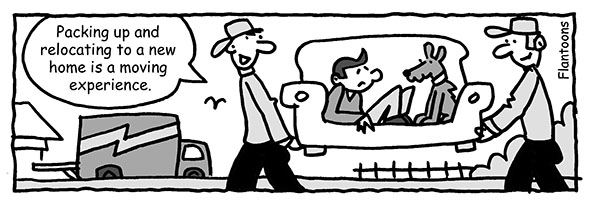

This month's cartoon is based on the word moving.
Moving (adjective)
When something makes us have strong feelings of sadness or sympathy, it is moving.
"She wrote him a very moving letter."
"I was moved by a story I saw on the news."
Yesterday I _1_ the strangest dream; I dreamt that I could fly. It felt so real _2_ high above the streets, up with the birds and clouds. Even stranger was none of my friends _3_ interested when I showed them I could suddenly fly. They didn't care or pay me any attention.
Lego is "letting kids down" by putting sales above the environment because of its _1_with Shell, say Greenpeace, the environmental organisation.
The charity is launching a global _2_ to get Lego, the children's toy manufacturer, to drop the oil giant, Shell.
More than 16 million Shell-branded LEGO sets have been sold or given away at petrol stations in 26 countries. Greenpeace believe Shell is using Lego to _3_ its image.
Learning English means hearing many new words you've never come across before. When you talking to someone and say a word you don't know it's important for you to find out what it is. Here's how we can ask for the meaning of a noun and how we can describe objects. This exercise will help you learn a few useful expressions as well as reviewing your vocabulary. How many of these objects do you know?
What's a pen? It's something we use to write with.
'What is your job?', is grammatically correct but not usually the way we ask someone's occupation. Instead we ask, 'What do you do?' or the longer form, 'What do you do for a living?'
Some common ways to answer are:
Even if you are not a football fan, you have probably heard that Uruguay’s Luis Suarez is in big trouble for biting a player during a World Cup game.
The present tense verb is bite:
Do you want a bite of my apple?
The simple past tense is bit:
The dog bit my foot.
The past participle is bitten:
Have you ever been bitten by Luis Suarez?
Some words have the same sounds as other words, but they have different meanings and spellings.
Take a look at these examples and then take the quiz.
He won a new car in a competition.
I have one brother and two sisters.
It's too dark to see anything. Turn the light on.
She went for a swim in the sea.
Starbucks, which is the largest coffeehouse company in the world, with 23,187 stores in 64 countries, is offering its workers _1_ college degrees.
Any of the company's135,000 employees who work at least 20 hours per week will soon be able to _2_ college at Arizona State University (ASU) Online. Starbucks employees can choose among 40 online courses, _3_ from retail management to electrical engineering.
The 2014 World Cup is well underway in Brazil. Here are some expressions that will help you talk about football in English.
1) I missed the Brazil game. What was the score?
2) England have to win this game to go through to the next round.
3) If they don't win they will go out.
4) Who scored for Japan?
5) I can’t believe the referee didn’t give a penalty.
6) He was miles offside!
7) That was never a foul – he dived.
8) Who did you think will win? What do you think the score will be?
We use should have + past participle to talk about things we regret.
I got really wet walking home last night, I should have taken an umbrella.
The speaker did not take an umbrella when she went out last night so she got wet. She regrets that she did not take her umbrella.
Regret (verb/noun) is to feel sorry about something that happened or did not happen in the past.
I should have called you sooner.
You should have spoken to me before deciding.